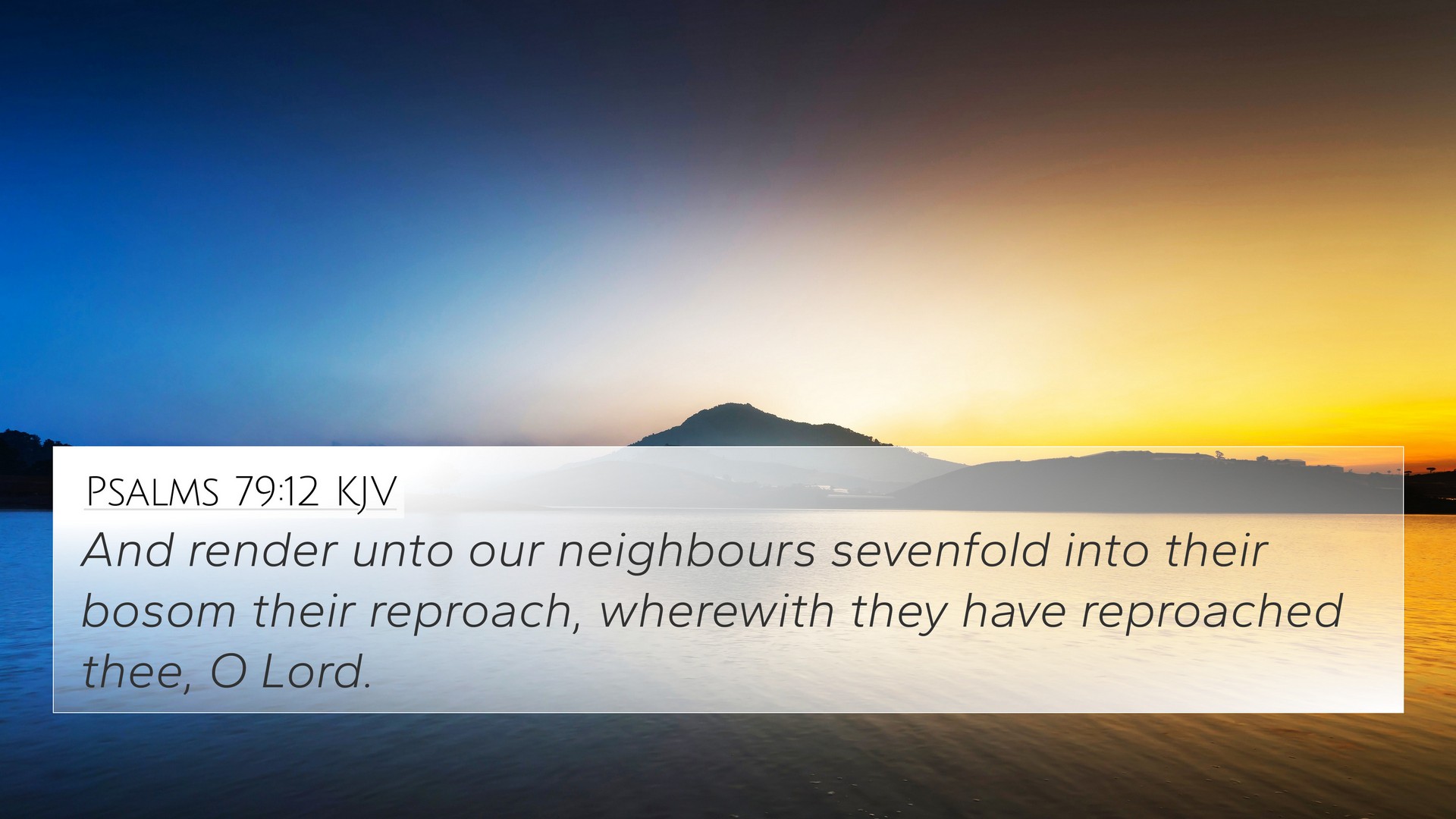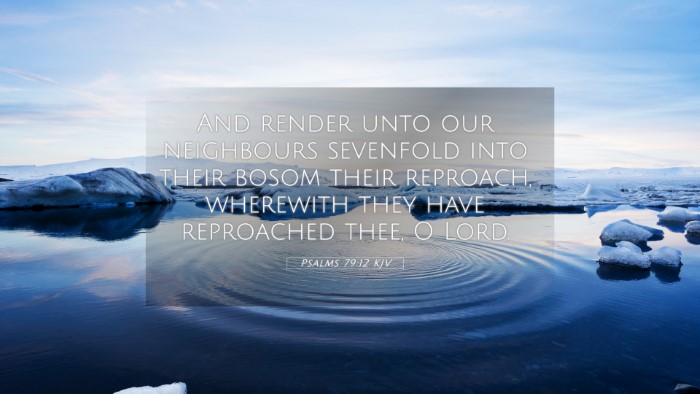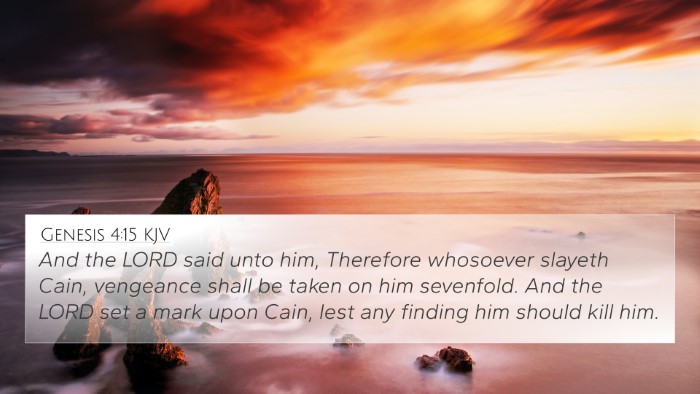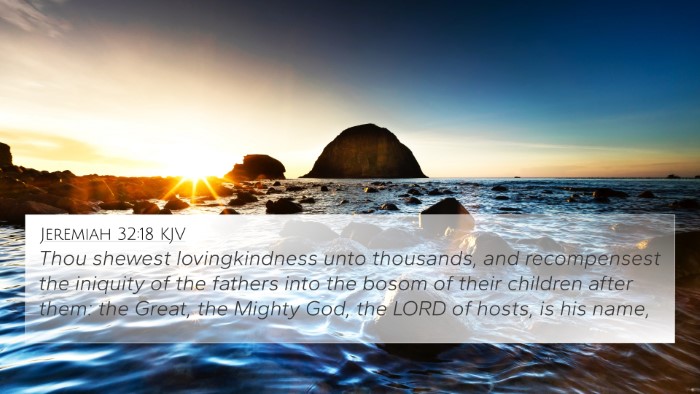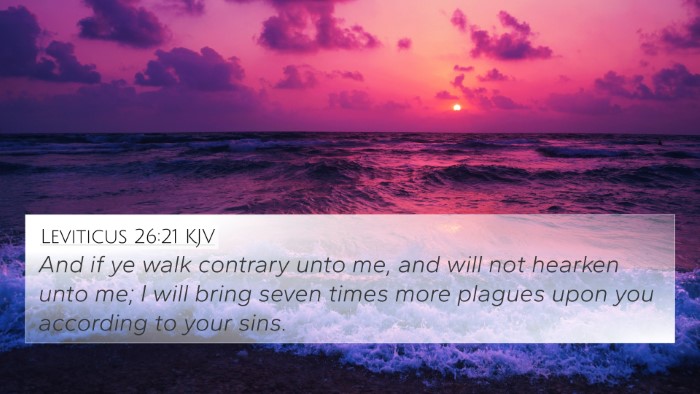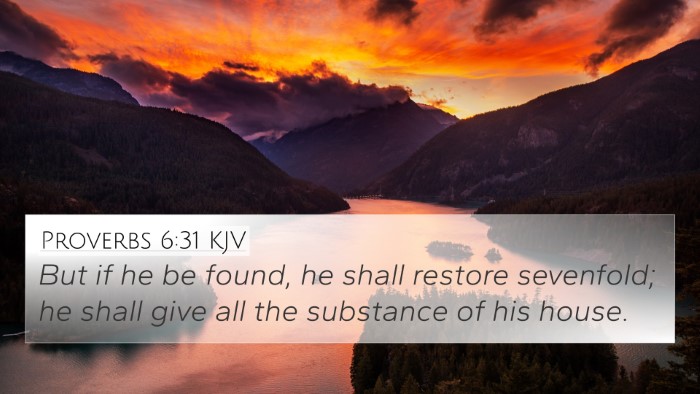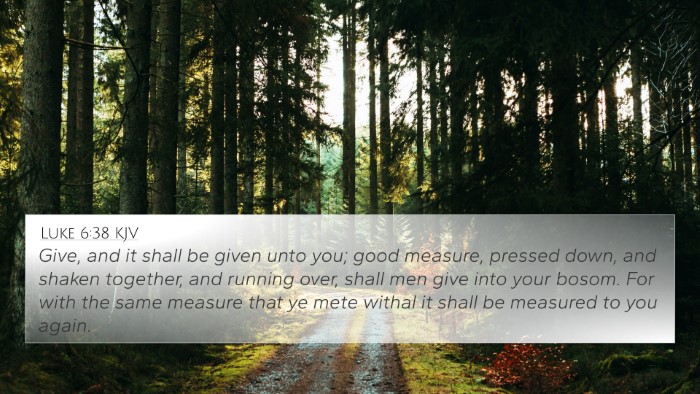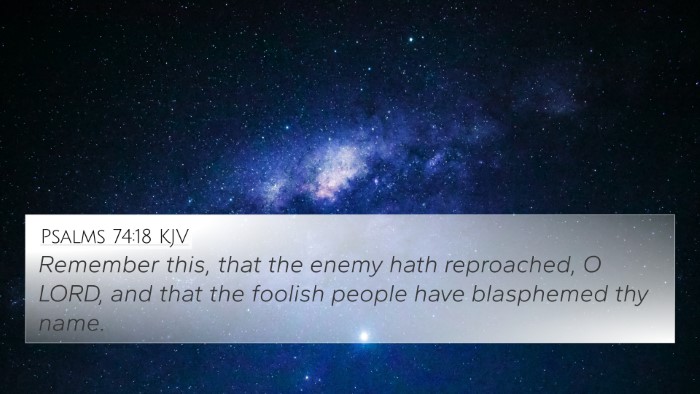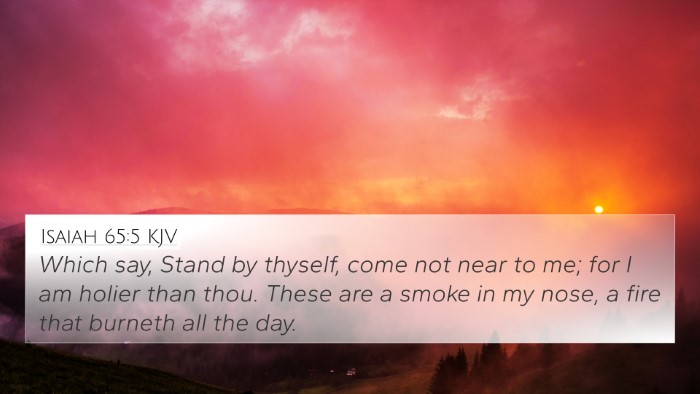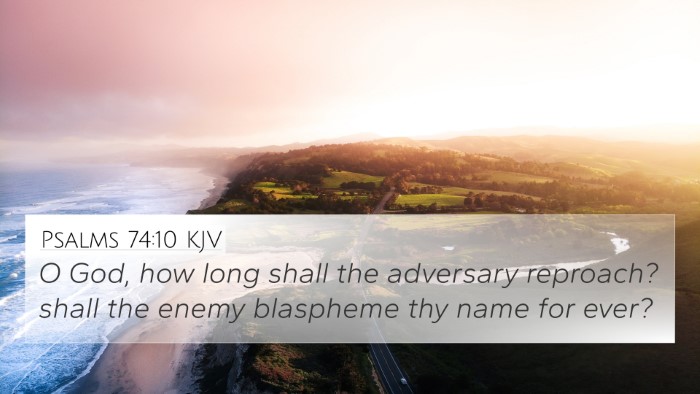Understanding Psalms 79:12
Psalms 79:12 states: "And return unto our neighbors sevenfold into their bosom their reproach, wherewith they have reproached thee, O Lord." This verse reflects a cry for divine justice and vindication, addressing the Lord regarding the reproach felt by His people. Below, we will analyze the meaning of this verse, drawing insights from public domain commentaries.
Summary of the Verse Meaning
This verse takes a deep look into the emotional and spiritual distress of the Israelites after suffering oppression and humiliation. The psalmist intercedes on behalf of the people seeking recompense for the shame brought upon them by their enemies.
Key Insights
-
Collective Lamentation: Matthew Henry mentions that this psalm is a collective lament, expressing how the people of God have been scorned and ridiculed by surrounding nations. The call for retribution is not just personal but communal, demanding justice for the humiliation endured.
-
Divine Justice: Albert Barnes points out that the request for recompense symbolizes reliance on God's justice. The enemy's reproach is directed at God, thus the psalmist highlights the importance of God's honor and the need for Him to vindicate His people by restoring their dignity.
-
Symbolism of 'Sevenfold': Adam Clarke elaborates on the term 'sevenfold', which represents completeness. It suggests that the psalmist desires not only a return of what was lost but a full restoration, indicating the severe impact of the reproach suffered by the people.
-
Connection to God's Glory: This verse ties in with the broader theme found throughout the Bible where God's justice is interconnected with His glory. The reproach against His people reflects on God's own reputation, as noted by Henry, thus making it imperative for the Lord to act.
Bible Cross-References
To enhance understanding of Psalms 79:12, the following cross-references illustrate similar themes of justice, recompense, and vindication:
- Psalm 37:22: "For those blessed by the Lord shall inherit the earth, but those cursed by him shall be cut off." This verse encourages believers that God's justice ultimately prevails.
- Jeremiah 50:15: "Shout against her all around; she has submitted herself; her foundation has fallen; her walls are thrown down: for it is the vengeance of the Lord; take vengeance upon her; as she has done, do unto her." This highlights God’s retribution against those who oppress His people.
- Isaiah 61:7: "Instead of your shame you will receive a double portion, and instead of disgrace you will rejoice in your inheritance." This emphasizes restoration following suffering and shame.
- Romans 12:19: "Do not take revenge, my dear friends, but leave room for God’s wrath, for it is written: 'It is mine to avenge; I will repay,' says the Lord." This teaches the principle of trusting God's justice.
- Luke 18:7: "And will not God bring about justice for his chosen ones, who cry out to him day and night? Will he keep putting them off?" This reflects faith in God's eventual justice.
- Revelation 6:10: "They called out in a loud voice, 'How long, Sovereign Lord, holy and true, until you judge the inhabitants of the earth and avenge our blood?'" This illustrates the continuity of seeking vindication from God across the scriptures.
- Psalm 94:1: "O Lord, God of vengeance, O God of vengeance, shine forth!" This pleading for God’s action against injustice parallels the sentiments expressed in Psalms 79:12.
Connecting Themes in Scripture
The themes of justice, retribution, and the restoration of dignity found in Psalms 79:12 resonate throughout various parts of the Bible, establishing a framework for understanding God's character in relation to human suffering and injustice. The psalmist's plea connects deeply with the overarching biblical narrative of God's care for His people and the eventual fulfillment of His promises.
Utilizing Bible Cross-References
When studying Bible verses such as Psalms 79:12, cross-referencing can serve as a vital tool to deepen your understanding. Here are some methods to utilize:
- Bible Concordance: Use a concordance to find related verses by keywords, enhancing the study of specific themes.
- Bible Reference Resources: Leverage various resources designed for cross-referencing to view thematic links across different texts.
- Comparative Bible Verse Analysis: Analyze how different verses interact with one another, bringing out rich insights about God's justice and care.
- Cross-Referencing Bible Study Methods: Applying structured methods such as thematic mapping or chain references can help connect various scripture passages.
Conclusion
Psalms 79:12 serves as a powerful reminder of the call for divine justice and restoration. Understanding its meaning through the lenses of historical context and scriptural cross-references enriches our comprehension of God’s merciful character amidst human suffering. This exploration is not only beneficial for individual study but also serves as a powerful tool for sermon preparation and deeper theological reflection.
By pursuing connections between this verse and others within Scripture, believers can find hope and assurance that God hears their cries and will act in His timing, highlighting the interconnectedness of God's promises throughout the Bible.
